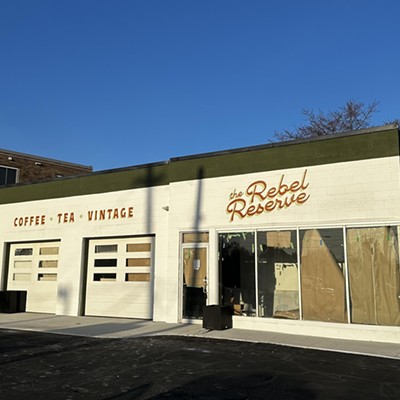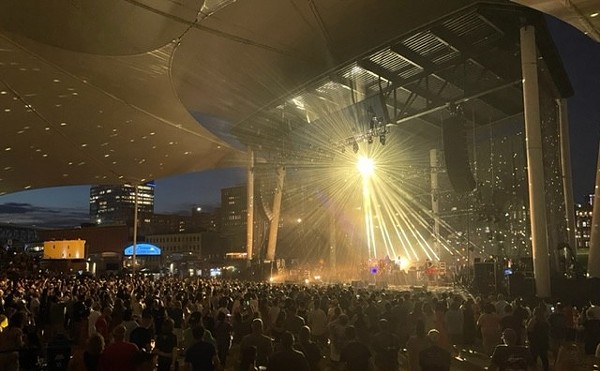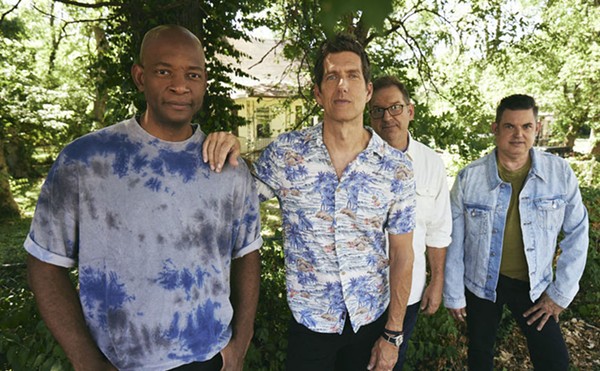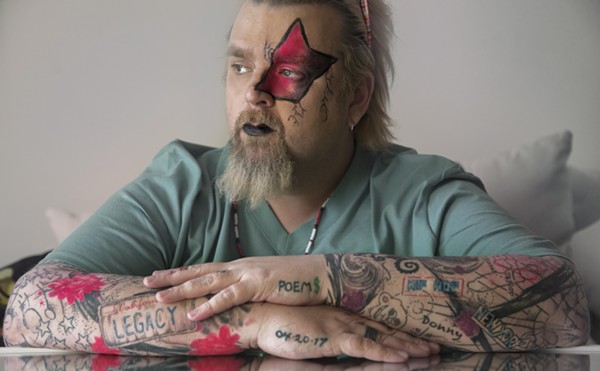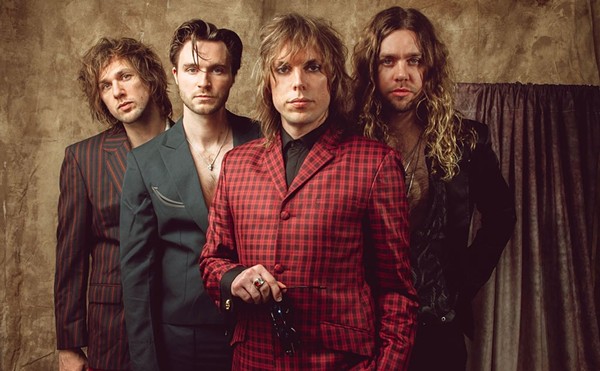Families are fundamentally support groups. That's one of the reasons local singer-songwriter Chris Allen thinks of his fans as family. That was quite evident on a busy Friday night a few weeks ago at the Happy Dog, where Allen indulged longtime followers by playing all of 2004's The Story of Gasoline, a record from his old band Rosavelt.
Allen has been making music for almost 15 years, in many incarnations, and his fans come out concert after concert to catch his Rust Belt take on heartland rock. In fact, it's a sound and experience they love so much, they actually helped Allen foot the bill for his past two records. "After losing quite a bit of money on my first solo album, I needed a new business model," says Allen. "People were spending less and less buying CDs, but I did not want to cut back on the quality of producing a good record — like great studios, great musicians, and a top producer like Don Dixon."
So Allen turned to his fan base to help fund his second album, 2008's Things Unbroken. He organized a party where he sold friends, family, and fans on the idea of making a record together. In the end, 100 people — each giving donations ranging from $75 to $250 — received executive producer credits on the album. Additionally, Allen offered donors a treasure trove of prizes: deluxe versions of the album, a special edition of his greatest hits, and tickets to all three release shows in Cleveland, Chicago, and New York.
They were also invited to a holiday concert, where they were greeted with champagne, a 45-minute set, and some hang time with Allen. "I was able to talk to people one-on-one [about] what they enjoyed, not only about my music, but independent artists in general," he recalls. "There is definitely a collective disgust for corporate rock. People feel like the personal side of falling in love with a record has been taken from them. They felt they were not only funding a record, but they were actually taking part in its creation."
Today, fans fueling record production is a full-fledged industry called "crowd funding," with monster websites dedicated to helping people bankroll everything from arts to business ideas. Portals like Kickstarter, RocketHub, ArtistShare, and IndieGoGo seemed liked the ideal starting place for Cleveland rockers Call Me Constant. Their upcoming concept album, The Sun, the Moon, the Dark, the Dawn, was partly paid for by fans.
"Our projected goal was to raise $7,000 in 30 days," says frontman Stephen Mlinarcik. "We needed approximately $3,000 for recording and the rest for mixing, mastering, and disc production. We generated a little more than half of our funding goal through the donations of over 90 individuals."
Call Me Constant shopped around to find an internet fund-raising platform that fit their style. Kickstarter is one of the most popular crowd-funding sites, but it also requires you to meet a monetary goal by deadline or no funds will be collected. That's one of the reasons Call Me Constant decided to use IndieGoGo, which allows artists to keep whatever they raise, minus a small percentage.
Each of these site has its pros, cons, and distinct angles. But artists need to remember these sites are tools, not magical sources of funding. "Be realistic about how much money you need for your project," cautions Mlinarcik. "Plan out everything: promotional materials, rewards, how you're going to pay for those rewards if you have to produce them, and the best way to generate a response from your fan base. It's way more work than it appears to be."
Donors typically get something in return for their money — T-shirts, posters, autographed albums, rare collector's items, concert tickets, and face time with the band. Busy singer-songwriter Brent Kirby, who plays drums with Chris Allen, leads the Lost Fortunes, and fronts the Jack Fords and the New Soft Shoe, surpassed his $5,000 goal on Kickstarter in seven days — thanks to some unusual incentives. For $1,000 or more, Kirby would actually write a song for you, record it, and frame the handwritten lyrics.
"I offered prizes like personal fishing trips, dinner the night of a show, 30-minute kid shows, and private listening sessions in the studio with food and drinks," says Kirby. Most supporters donated $100, which netted them handwritten lyrics. "At the end of the period, I had around 25 lyrics sheets that I had to write out. I haven't sat down to hand write 25 pages of anything since I was a kid. Who writes things by hand anymore? And that's the draw."

